By Eric Schneider and Tanvir Hassan, Youth-Leader Magazine
Babar Ali holds the record as youngest headmaster in the world. Age 9 is hard to beat.
We re-publish his epic tale with exciting updates.
As a teenager, he has been teaching hundreds of students in his family’s backyard, where he runs classes for poor children from his village. The story of this young man from Murshidabad in West Bengal is a remarkable tale of the desire to learn amid the direst poverty. Let us follow him on his typical teenage day.
Babar wakes up every morning at six, and starts his day by doing some house hold chores. Then he takes an auto rickshaw first, and later walks five kilometres to the “Cossimbazar Raj Govinda Sundari Vidyapeeth” where he is a class XII student. Babar is the thin and gangly boy who sits in the middle of the front row. Studious, smart and austere in his blue and white uniform, Babar is a model student. He is also the first member of his family to get a proper education.
At school, he is an ideal student, but it is what he does after his school hours that intrigues the entire world.
When every other teenager goes running off to the playground and gets busy with football, cricket and other sports, Babar makes his way to an afternoon school where he is the headmaster of a school of 800 students.
Welcome to Babar Ali’s school!
It is a dilapidated concrete structure covered in half-torn posters. Inside, in a tiny, dark room behind a desk, sits someone that several prime ministers know by name, and so should you!
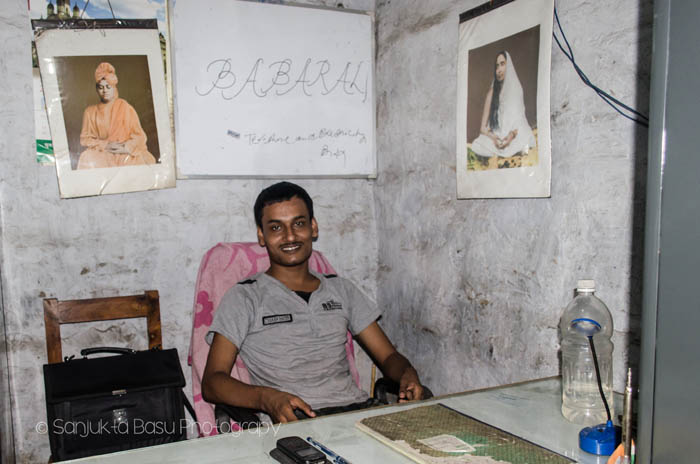
Babar Ali at his desk at Anand Siksha Niketan school
Behind the office is a gate that opens to Babar’s home. This is where rows of poor, underprivileged kids sit under the open, blue sky and learn what most children in the modern world pay hundreds of dollars for, for free. This is where 800 kids who are deprived from their basic right for education, walk miles to learn, free of cost, the basics and fundamentals of life.
So let’s take a minute over here and think. While we whine about our allowances and fuss about staying out late; this average boy from a small village, is actually helping to make this world a better place. Today, all around a world where millions of children are being deprived from literacy because their families cannot bear the expenses, this one school boy from India is trying to change that. And so, still a teenager, Babar Ali is the world’s youngest headmaster!
Babar happens to be one of the fortunate souls in his village. In the Bhapta neighborhood of Gangapur Village in West Bengal’s Murshidabad, Babar lives with his three siblings and his parents in a thatched house which is the size of an average city kitchen. Yet, ironically, he is still among the privileged ones in his village, because unlike most children there, he went to school and got formal education. He was better off also in being the son of Nasiruddin Sheikh. Nasiruddin is a jute seller and a dropout who believes that education is man’s true religion, and who initially supported his son’s venture with his own income. Coming from a privileged family Babar realized he must do something for the other children in this village.
Even though their community provides free education to children, sending children to school is not entirely free of cost. Although the children are taught for free they still have to pay for uniforms, books etc. That is why a lot of families cannot afford to send their children to school. Thus instead of going to school most of the boys help out their families by working as mechanics, day laborers, grass cutters, live stock herders etc; whereas girls work as maid servants in the village where they cook, clean, wash clothes and dishes for their employers . Babar Ali wanted to change this. That is why he took the initiative of opening his very own school.
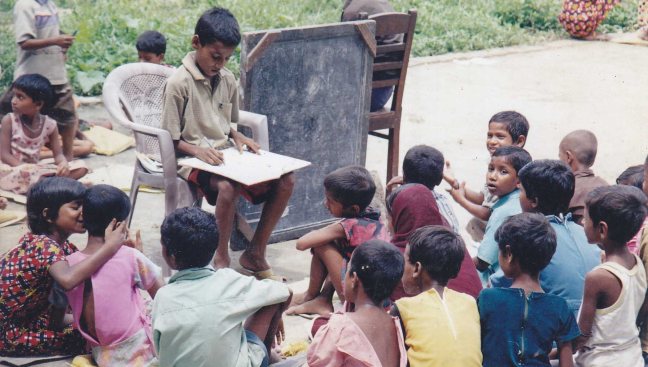
Babar in his early days
Ananda Siksha Niketan
The Home of Joyful Learning
Babar Ali actually started his school at the mere age of nine, when his friends could not afford to attend school. So he decided to teach them what he had learned at school that morning. In fact, his school Ananda Siksha Niketan grew out of a game.
“We used to play school-school, with me as teacher. My friends had never seen the inside of a school, so they enjoyed playing students. They ended up learning arithmetic and enjoying it”
said Babar Ali while trying to explain how he initially started teaching.
He loved to play around in the imaginary school he had set up on the portico of his small house. He was the master and his sister, Amina Khatoon, was the student. Then he found out some more kids who didn’t go to school and got them to sit for his classes. And the show – the “read game” – went on. It was great fun. The little teacher’s lessons to his students were as basic as identification of alphabets and simple grammar and language, but everyone enjoyed it. The game was all about imitating the teachers at school, ask the students from portions already taught, scold if someone didn’t answer, and everything else that happened in schools. The game became a regular fun activity for the kids. While playing, it just struck the boy that he was fortunate enough to go to a school, but there are so many boys and girls in the village who didn’t! One day he decided, no more game;
“I’ll open a real school.”
This was in 2002, with the strength of eight.
Oh, imagine them looking back at it today! But wait where the adventure tale has taken Babar by today! As an Indian student or parlamentarian, you’ll surely know, but if you live beyond Indian’s borders, you are yet to get dazzled. Get some popcorn and enjoy the movie!
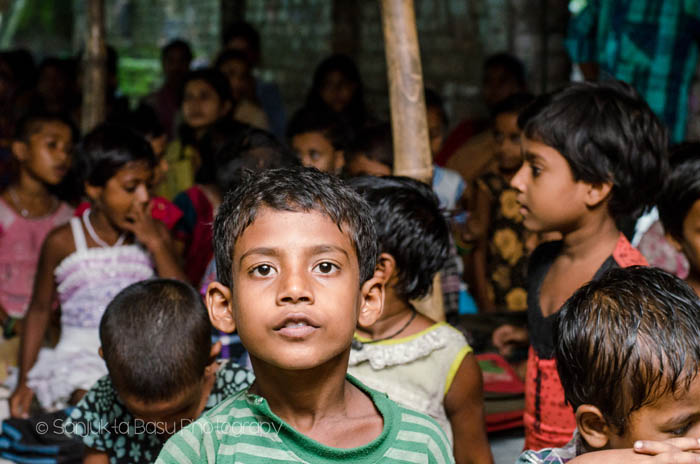
Students at Anand Siksha Niketan
So, gradually word spread and the numbers grew. Help began to come from other quarters: Babar’s own teachers, monks at the local Ramakrishna Mission, sympathetic IAS officers, even local policemen, and of course his family.
“We are very poor. But my parents have always encouraged me to study. My father keeps telling me that there is no substitute for education. My parents encouraged me to set up my school.”
Their support did not end with words and space. When their son first thought up a mid-day meal scheme for his flocks of schol children, the rice came from his father’s fields. On top, the family had to fend off opposition in the village.
„The village elders were sceptic about educating their children because they were not educated themselves. They needed the children to lend a helping hand in earning for the family. They had strong reservations about girls attending school. But I ignored all criticism and went ahead with my plans. Today, the school has around 800 students of which 60% comprises girls and boys make up the remaining 40%.”
Since, when the children of the village and the localities nearby are done with their chores and jobs at day time, they run to attend Babar’s afternoon school. They arrive in time for Tulu’s opening bell.
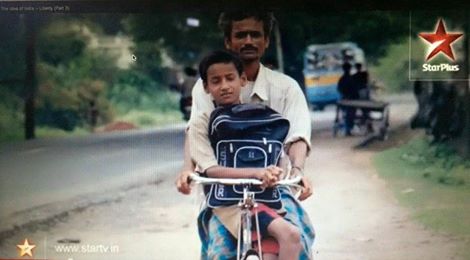
Babar’s father picks our VIP up from school, so he gets to his office in time
Today, twelve years down the line, the school has 60 regular attendees and over 220 students on roll-call and 800 students in total, with ten volunteer teachers teaching grades 1 through 8. When his first graduates passed university access exams, his little afternoon made a breakthrough. The Home of Joyful Learning got registered and recognized by the West Bengal State Government as official school – which means that students graduating from Babar’s school are eligible to transfer to other local high schools!
Can you imagine your father to provide daily lunch for 100 poor neighborhood kids who spend afternoons in your family home’s backyard?
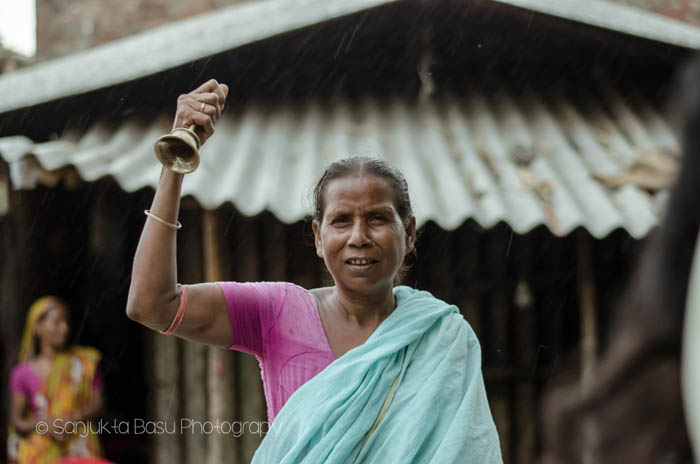
Tulu Hazra, the school „matriarch“
Meet some pure, good, kind souls…
Clad in widow’s whites, stick in hand, Tulu Rani Hazra is an illiterate fishmonger by morning and a crusading educationalist by afternoon. On fish-selling rounds of nearby villages, her job is to confront erring parents who’ve stopped sending their children to school and to find new students. She has recruited 80 till now.
The teaching staff of nine is made up of high school student volunteers. They also, are average teenagers, who are helping out Babar in making a difference.
Babar Ali gives lessons just the way he has heard them from his teachers. There is no building or establishment for his school. He teaches his students under the open sky. Some children sit in the mud, others on rickety benches under a rough, homemade shelter. The family chickens scratch around nearby. In every corner of the yard groups of children can be seen studying hard.
It is much easier to enroll kids who are not old enough. So Class I and II have over 200 students. Class VIII has just 20 students. Students study 10 subjects, and text books are free from class I to V, but for the rest money needs to be arranged. On any given day there are close to 400 students physically present in Babar’s front yard.
Sometimes, it is hard to get the children to listen, being so young themselves, and Babar has to call to mind that no one shall disturb everyone else’s learning journey.
“The narrow age gap works to our advantage,” says Babar.
“We are more like friends. The rod is spared in my school.”
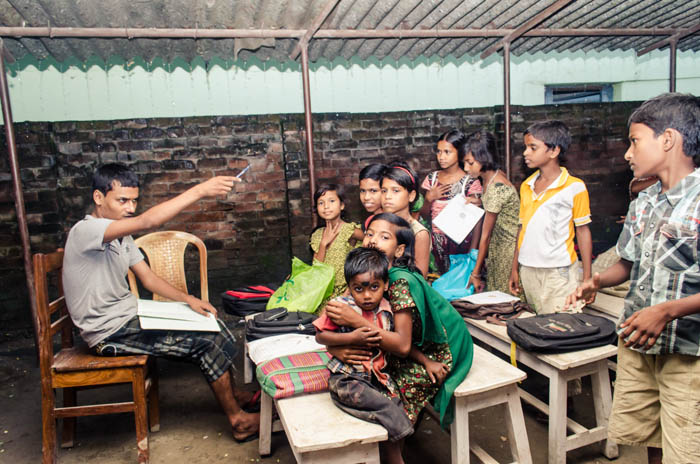
Babar teaching. At rare moments, he also needs to be strict
Altogether, the school is a great intergenerational community experience, and people are well aware of its value. Tulu Rani Hazra, the „matriarch“, a bell in her hand, oversees the day’s structure. The teaching staff, all of them women, now includes some former students. One of them is Babar’s younger sister, Amina Khatun, who has also been one of his first students. Having lived the ultimate Ananda Siksha Niketan experience, she has naturally internalized the ways of managing a school, and is entrusted to run it in Babar’s absence.
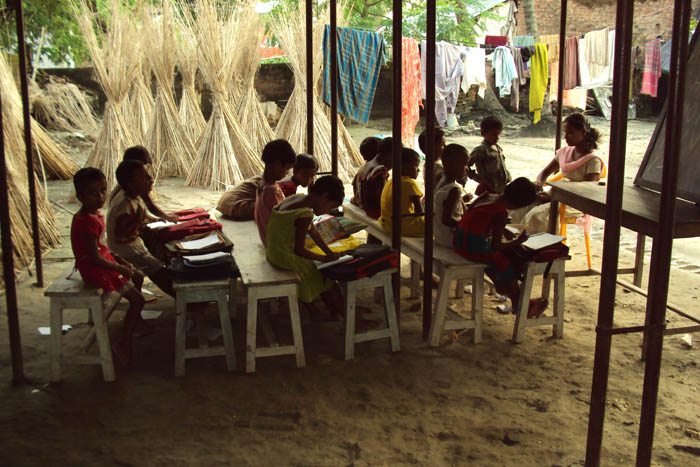
Babar’s sister, Amina Khatun, was one of the first students. Today, she is a teacher at the school
Getting to know about a person like him makes me realize how insignificant I am and yet again how lucky. Babar has not only helped out hundreds of children to get a much broader view of the world, he has also inspired millions of youths like us. Babar Ali’s tale is a testament to the difference that one person can make in his/her world. In this case, it was a mere child who decided to do something about a situation he felt was unfair.
His story also bears evidence to the fact that if you have a will then there surely is a way. That a nine year old can alone change the world should be enough inspiration for all of us to come out of our closed cocoons and help make a difference.
Coming from a small village in Murshidabad he should be commended just for the audacity of hoping. It is this hope, and the faith that he has upon himself that has helped him come all this way. So, here is to Babar Ali: We salute you for dreaming and making your dreams come true.
Today a Babar Ali; maybe tomorrow it could be someone from among us. So isn’t it high time that we be the change that we want to see in this world? The story does not end here. For India, it has just begun.
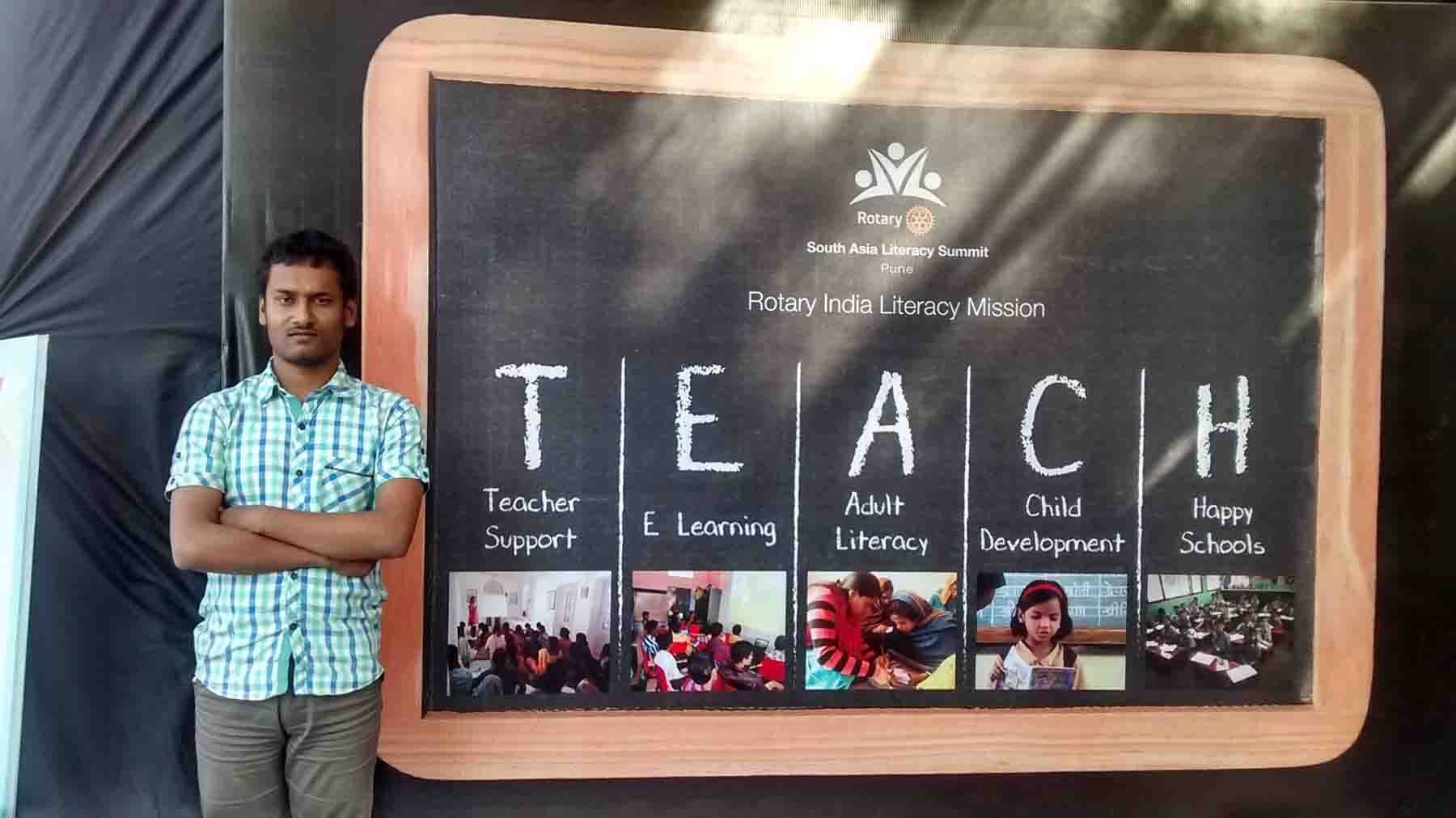
Babar advocates for better education with life and citizen skills
A new chapter unfolds
The success story of Ananda Siksha Niketan has reached many ears and hearts throughout India and the world – and the story of this heart-driven school has been spreading through news articles, books, teaching tools, exhibits, and even cardgames in up to nineteen languages.
As this inspired world in high need for solid education for our children starts reaching out him, asking how to help, a new chapter is opening up for Ananda Siksha Niketan.
The frameworks are set. At twenty-one years of age, Babar has completed a degree in English Literature at Krishnath College. He says that he has thoroughly enjoyed the experience, indulging in his own love of learning, and the elaborate wielding of words and thoughts. Still, he has not neglected his duties as a principal, nor will he during his Masters studies at Kalyani University. He fulfills his role to continue this rewarding mission, and so do others.
His first generation of students also has reached maturity, and they naturally take their own turn of responsibility at Ananda Siksha Niketan. All teachers have been students at the school, before, and all of them are women, his own sister one of them.
His precious haven of learning is now securely resting on many able shoulders, Babar starts manifesting his greater vision: the replication of this success model in many places. For him, the next natural step is not far. A town just five kilometers away is lacking a school. Think like Babar for ten seconds – what comes to your mind, and what are you going to do about it?
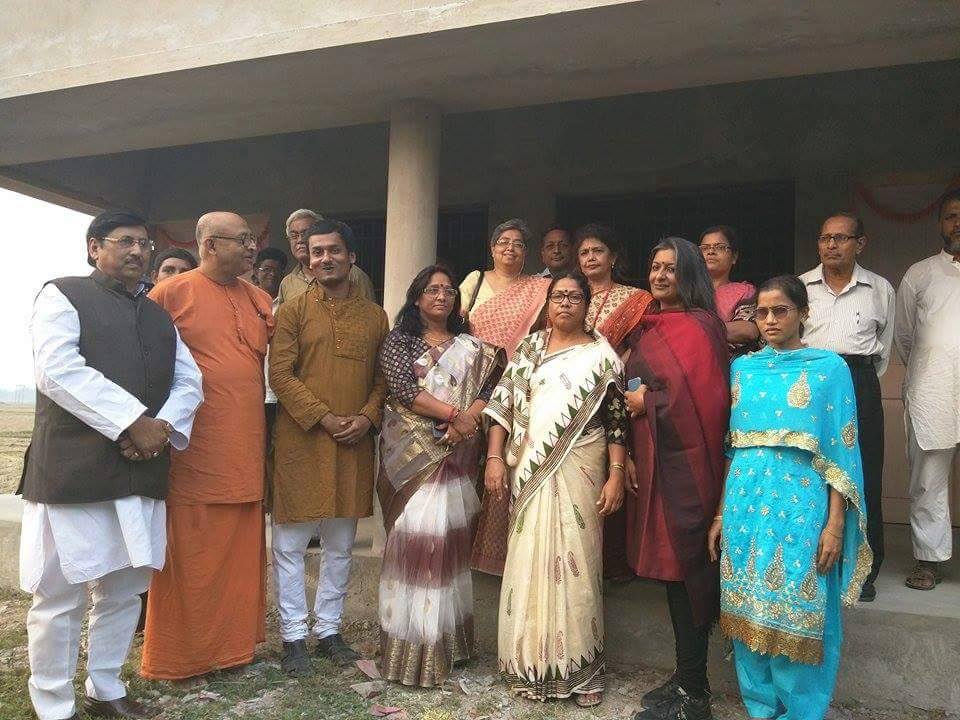
Laying Foundations, with Firoza Begam (M.L.A), secretary of his school
Building a new school
Over one year, Babar has gathered support, and as I am writing, the foundations are being laid.
These foundations are more than just stone. They are people, in India and abroad. Conference organizers, mediamakers and award sponsors have responded, but more importantly – as his Class X students have been passing a high school board exam with a success rate of 90% – government officials take notice, that this modest village school fulfills the expectations of the standard education system.
Even though Babar has started his school merely out of necessity, visionary stakeholders in education recognize Ananda Siksha Niketan not only for its unique inspiration for teachers and students, nationwide, but also as a school model with promising potential for replication. Some of them have joined to take supportive roles in his school’s board.
In fact, Babar’s venture is part of an important phenomenon of our time. The thriving movement of people- and community-powered education, pioneered by scandinavian free schools, democratic schools like Summerhill and Sands, where students make the rules, like TEKOS, where students learn just among each other, without adults, finish high school by age fifteen, and complete university degrees by age eighteen. Besides, they build and administer their own school, learn fencing, martial arts, traditional dance and bathe in mountain streams.
Other examples are renowned institutions like Wilhelm Schole International, whose students surf with ease through universities, while still volunteering, Escuela Nueva, also homeschooling, and even roadschooling. As you can imagine, these schools convey the standard syllabus, but students also evolve many other skills on-the-go.
Even though Ananda Siksha Niketan was not designed with such high-flying intentions, I can only imagine what skills its graduates possess.
But I am sure that they have had a lot of experience in dialogue, discipline, listening, collaboration, respect, adaptation, improvization, problem-solving, cooperation and co-leadership that are precious for life and for professional paths … skills that many “rich” state and private schools do not teach their students.
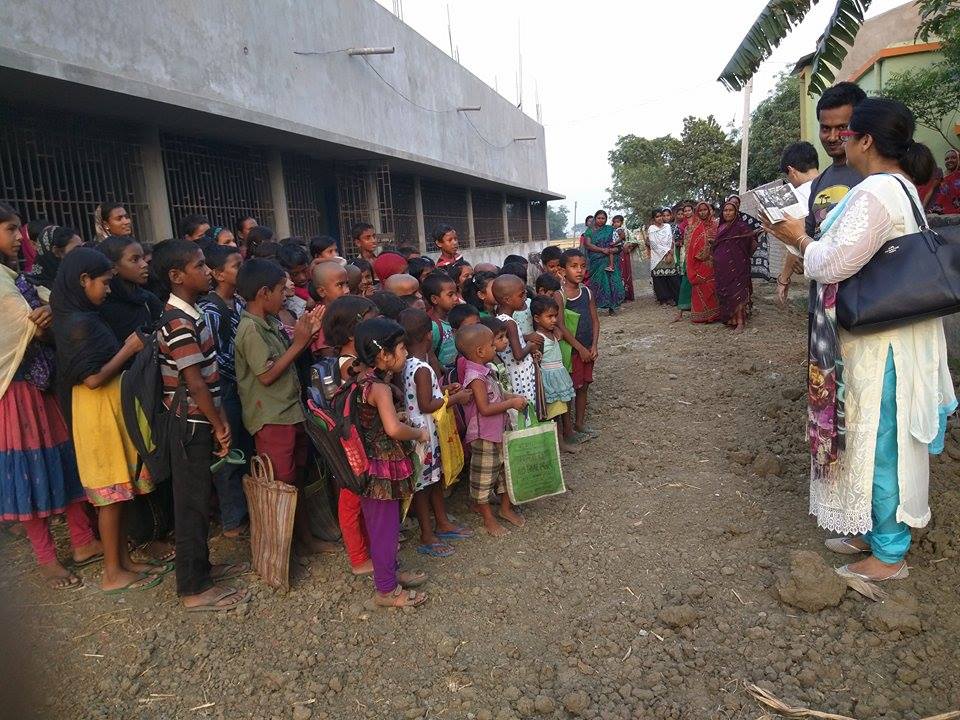
Opening day of the new school, 2016
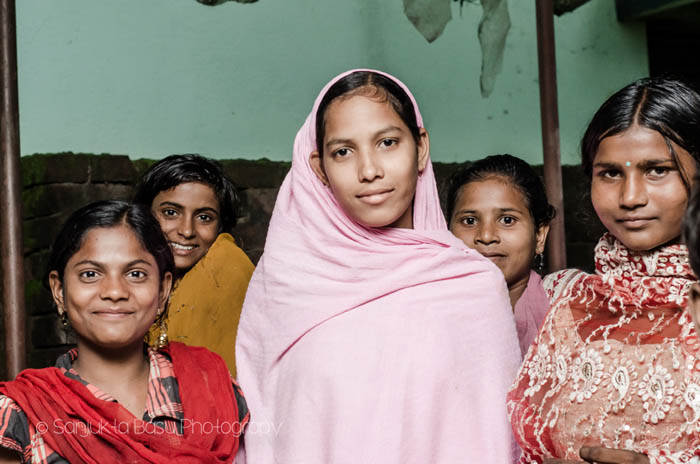
Babar’s first students have become teachers at his new school
Keystone to this endeavour’s success is Babar’s devotion to making his life a service for the higher good. This is not lightly said. His acts have proven it for more than a decade. It is not ambition that drives him, but genuine empathy. Empathy – the quality that distinguishes the social entrepreneur. And humbleness, in face of what lies ahead, for all of India.
“Poverty and ignorance go hand in hand. I wanted my friends and the girls and boys of my village and neighbouring villages to break this shackle of poverty and ignorance. I was confident that they would be able to do much better in life with education. I wanted to bring into their lives the light of knowledge that would give them a better future.”
These are the words that define him.
Everybody who has met Babar knows that he means it.
His payback is to see children’s eyes light up with the joy, thirst and determination to learn, acquire skills and never stop.
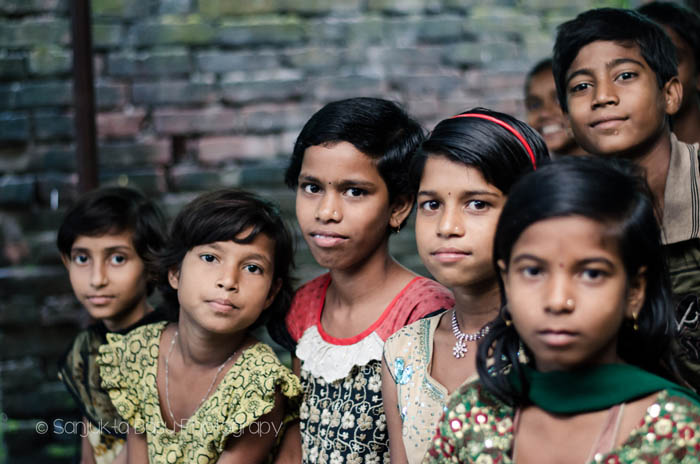
60% of students at the House of Joyful Learning are girls
The World Responds
Babar’s story has spread all over the world, and we have been in touch with him since we first reported on him in 2010. Here’s a few highlights from our newsfeeds. Spot Eric!
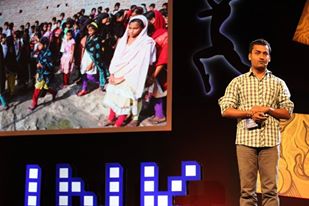
Speaker at TEDx, INK
and many other conferences
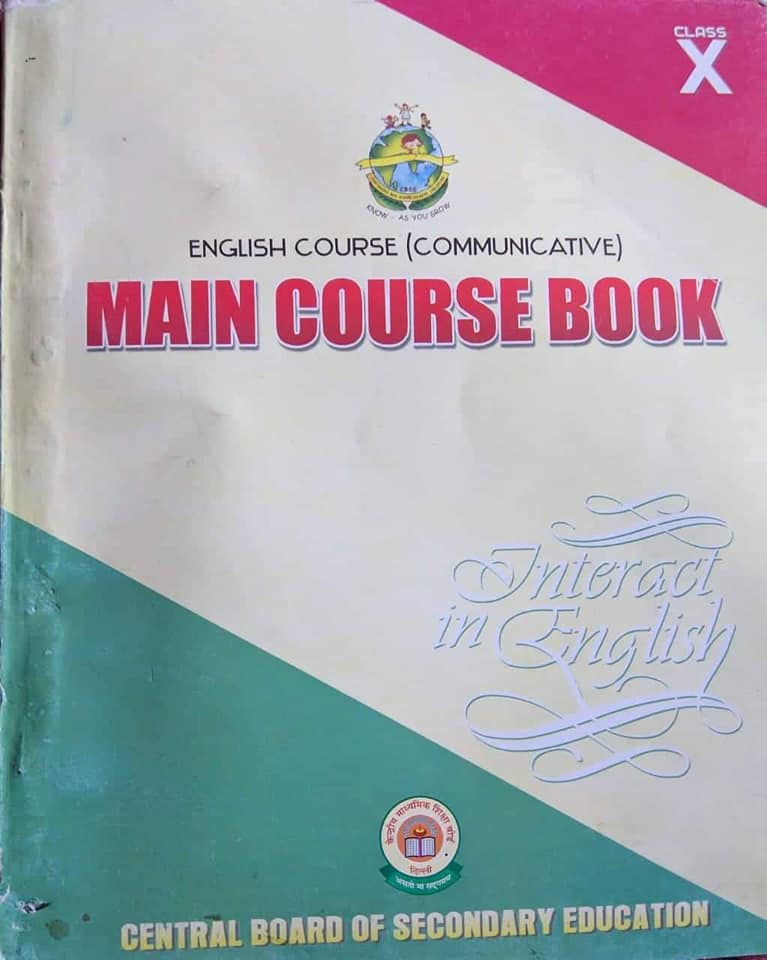
His story in India's english textbook
reaching many million students
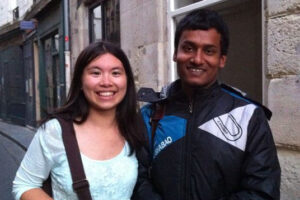
Meeting at NightScience Paris
with Adora, Eric, Nellie, Lonjezo, Joseph, Lance

Indian TV Academy Award - with child film actresses
Countless media interviews
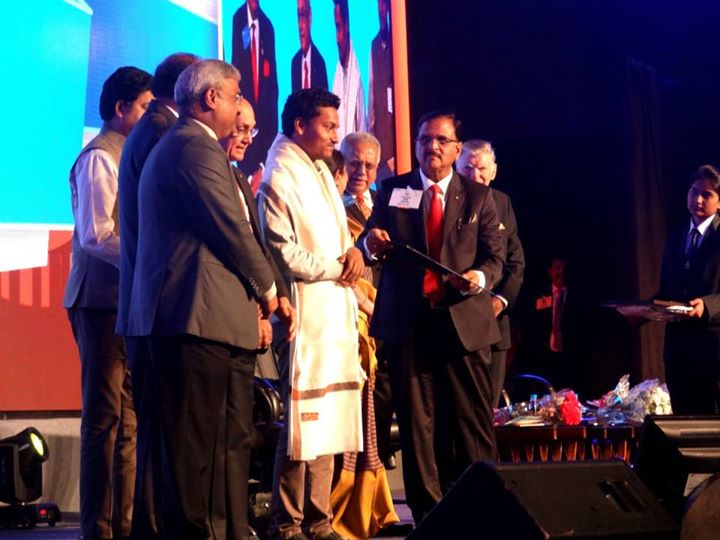
Rotary's World Teacher Award
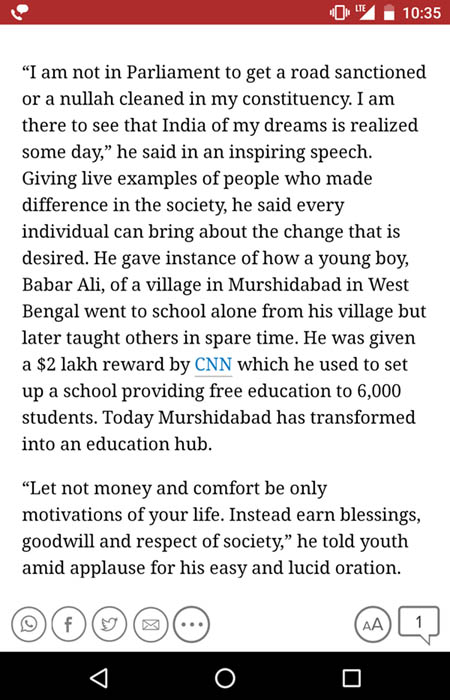
Mentioned by Varun Gandhi in parliament
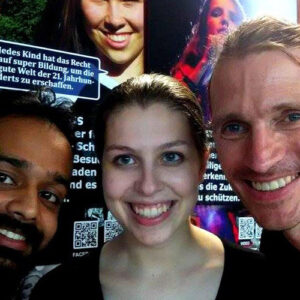
Meeting at IYONS India
with Rhiannon, Gaurav, Nidhi, Ajay, Red Brigade, Holley. We were so busy we didn’t take a photo, here’s one with Gaurav and Rhiannon
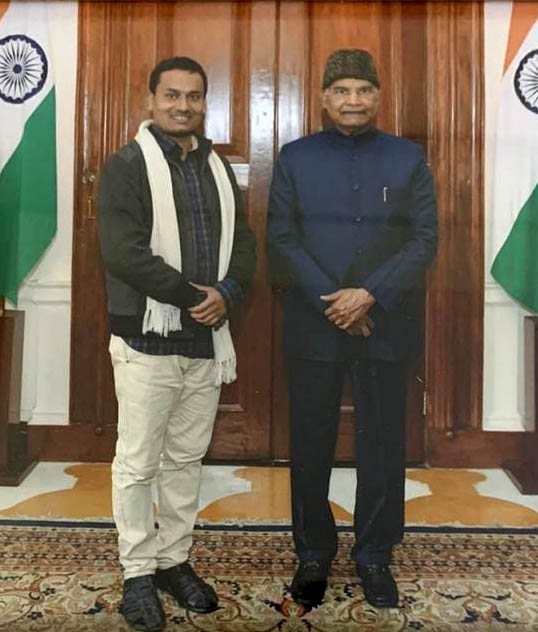
With India's President Rastrapati Bhavan

Angelina Jolie thanks him for his story in her book
Eric keynotes Indian Independence Day
Babar speaks at India's Education Day
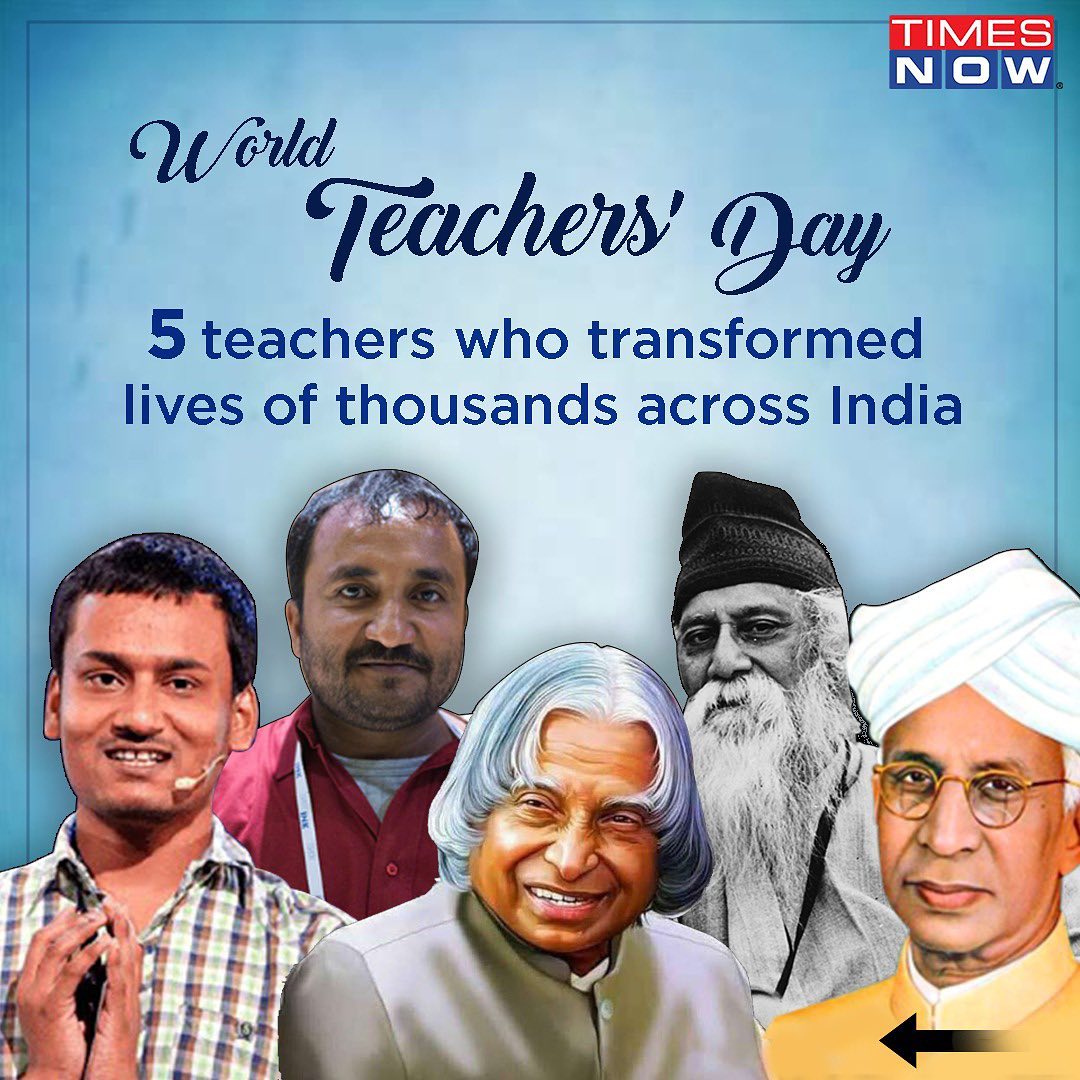
Oha, Eric, he outperforms you here …
Yea, but he asks me for advice 🙂
Inspiring India
Babar’s dream has always been to serve more children than only those of his village. His village exists a million-fold in India and the needs of children exist 100 million fold.
Are teachers in India inspired by his model?
“Yes, of course. Every day, I get phone calls of teachers asking me for help to start a free school in their village.” He smiles. “But it is more complicated than you might think, to get this organized.”
We think of summer schools, right at his school, so that teachers can experience a training right in the actual setting, with testimonials from students, teachers, villagers and supporters.
“Yes, this is one part. My dream is to set up a foundation to further this noble cause for the benefit of our deserving people, and to be travelling all over India. and also the world, some day, since these problems are not only prevalant in India.”
In late 2021, Eric and Babar combined their knowledge horizons for keynotes at major events, with many practical examples that have caused some ripple effects. Our main points were
- open multi-method learning culture
- student-centred learning
- project-oriented learning
- life skill learning
- citizen skills learning
- learning for sustainability
all of which are yet little present in India’s schools practing a 1950s style frontal teaching with up to 60 students per class. This means that every two or three lessons a student gets to pose or answer a question. How can one learn in this settng?
It is time to introduce diverse methods and to give students a strong part in shaping and guiding their learning process. And to give teachers time and space to shift to roles of coach, observer, learner, innovator and networker.
Inter/national partners are a great stimulus for this!
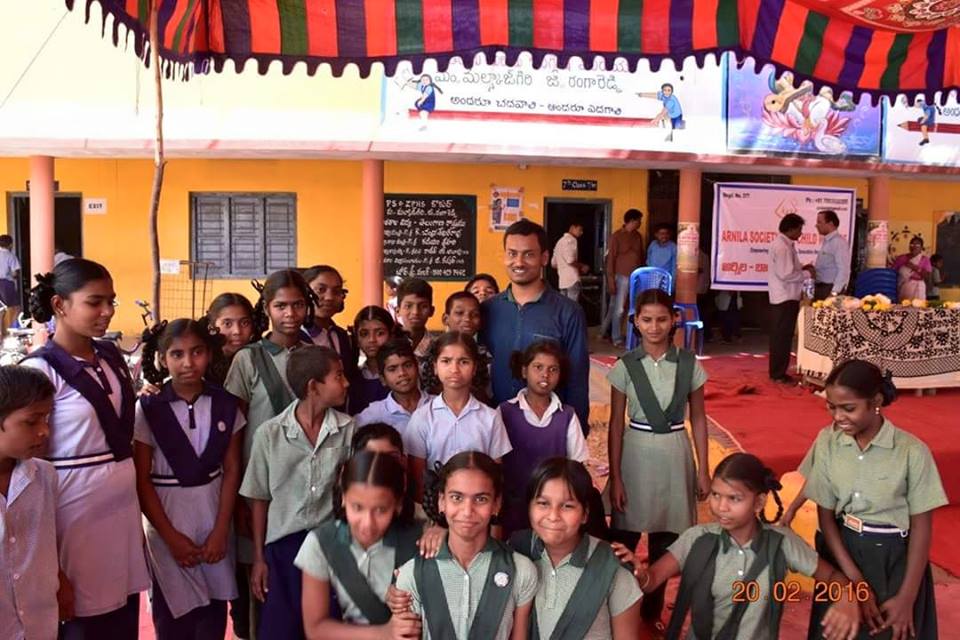
Whenever Babar visits a school, he seeks to engage students in a practical action, also linked to current UN Days, like planting a tree
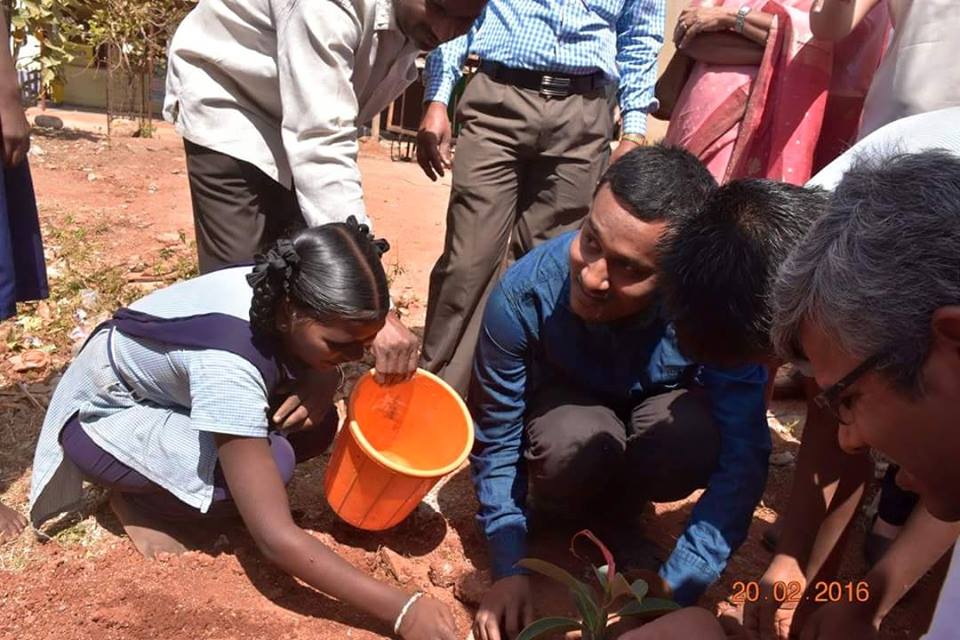
Getting things done – with you!
In early 2022, Babar held a speech on learning culture and addressed what he experienced during the pandemic. His village school was closed prcatically for two years, a fate that struck countless others. Can you imagine a nation’s village children missing out on two years of education? Like 20 million of them?
Distance education by internet is a big buzzword, but when it comes to speeches of high tech national, global superpower, the reality for India’s 600 million strong rural population is this:
“What distance education? There is no functional internet at our village. We did not even have access to proper information. Me personally, I was sick with Covid several times, not knowing what was going to happen to me.”
Until today, we could only have video chats at Babar’s office, not with students in classrooms. Students do not have IT possessions at home.
Babar quotes reporting on the pandemic period: that a good half of India’s school students had no proper access, teaching was limited to an hour per day, teachers were not literate in distance training …
“It is a catastrophe that will show results in years to come.”
Babar closed his speech with a proposed nationwide effort to bring proper internet access to villages and that this initiative shall begin with schools as epi-centres,
Use Schools
Existing structures
Train Teachers
No need for new employees
Public Services Win-win Benefits
Learning culture and community centre
For optimal results, form a Changemaker Student Club uniting fired up youth of all classes and years … and use existing school space as HQ and LearnSpace … beyond school hours > on afternoons, evenings, week-ends and holidays.
Dialog with global schools
SDGs, learning, projects, exchange
Public Activities
involving the community
Co-creative Community Centre
co-managed by youth and citizens
Inspired and equipped with YL ‘s media, tools, tricks and global partners students, teachers and citizens have a global ENABLING ENVIRONMENT for self-organized Able Active Caring Citizenship in interaction with today’s Einsteins, Montessoris, Gandhis and Gryffindores
for dialog, inspiration, projects …
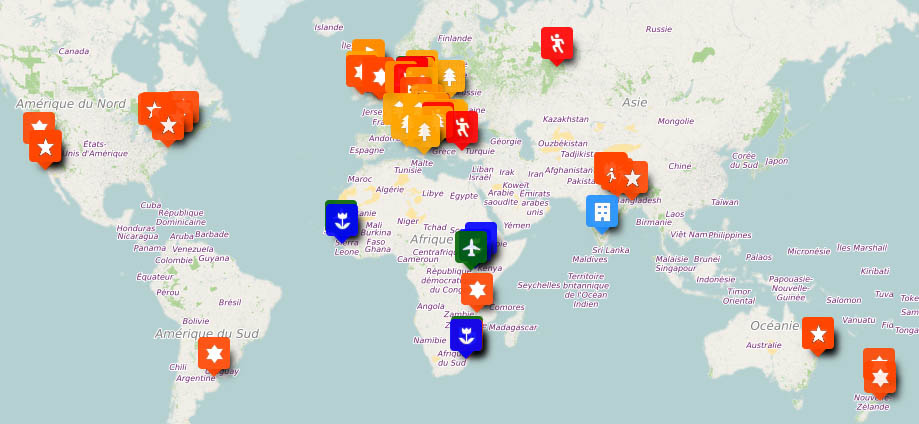
Our Journey together
Others read of him, or listen to him.
WE WORK TOGETHER
By this time, you know a lot about Babar’s life, his heart, his entourage, his tribulations, vision and needs.
You also know we are an action magazine and caring community of people with ace wit, skills and resources. In a time of global learning, school presentations, SDGs, Learning for Sustainability, inefficient protests and doom and gloom causing a mental health crisis among youth …
we can give one’s school students video-meetings with youth that actually get things done. and enable us to do something for real.
We have founded the Boost Club for precisely this purpose – that a billion caring citizens start boosting our world’s finest to grow their high impact initiatives. Because no matter how kind each of us may be, most of us are tied into our daily work in a not-very-world-transforming setting …
only few of us are in the position to evoke changes that impact thousands or even millions, with cascading ripple effects in their communities and society as a whole.
Babar is one such person. You have proof. And you know the plan.
You also know … even if politics decided to dump money into internetifying rural India, that’s only 2% of what’s truly needed – that the tech gets filled with Prana Juice for youth leadership and active citizenship galore!
There’s no need to wait for politics. All there is to do is #bemoreawesome
This is about generating a (small) sack of gold, like student clubs do to develop villages. Namaste Nepal have raised over a million dollars / euros in their town of 30,000. with simple sponsor runs to generate $40,000€ on a single week-end. Or the kids in Buchen (17,773 inhabitants) who scored $10,000€ in year 1 and $20,000€ in year 2. They’ve built 8 schools. We already have the school we need!
One sponsor run already sets up the LearnSpace big time! And video-meets, interactions, learning, giggles … a premiere in this village’s 10,000 year history! First, the kids will look at you with big eyes, and then parents will look at their kids with big eyes as they tell their tales of meeting … your crowd.
Plus, the buzz created in your region gets schools and 1,000s of folks involved … and wouldn’t they want to meet their exotic partners overseas? Of course! And so, bonds will evolve and in kinds minds will appear the idea
“it would be so cool to go meet them. Can we go?”
And then – visits – like above mentioned student clubs do. The platform is ready. Now you just gotta do the unimaginable. You team up with the famous Youngest Headmaster in the World to take his dreams next level. Stop being boring. Come on over, we need your help! Think of the stories that you’ll have to tell your friends!
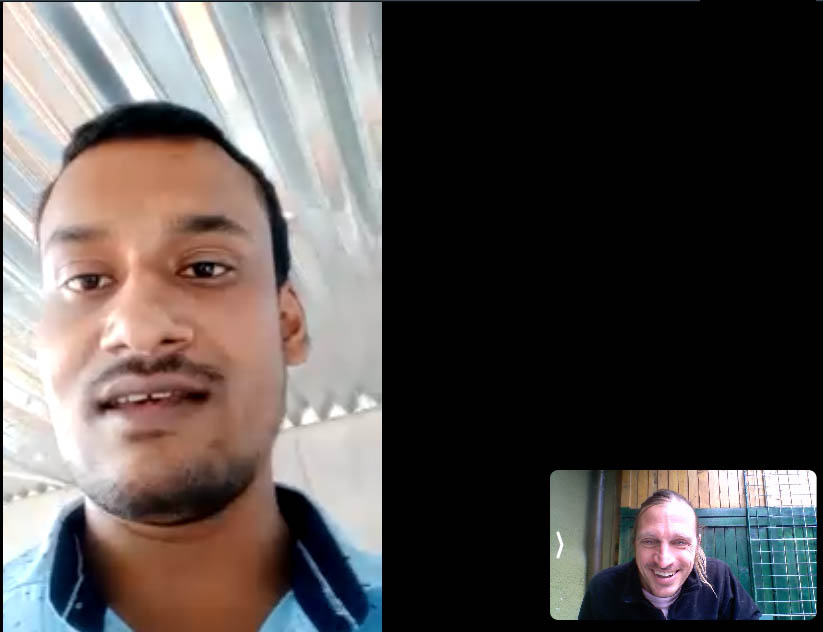
Babar and Eric video-meet regularly
We have long agreed on involving global schools, youth teams and citizens
- video-meets
- Living SDGs in Action
- project partnerships
- volunteer stays
and now that the world has awakened to global problems and the need for all of us to #bemoreawesome and how much it enriches our life at school and work, this is the time to accelerate our efforts.
Start with a Video-Meeting
Book Babar as speaker, prepare with his story, action guide and meet for open conversation on what to do next
Realize a Milestone
Set up global internet connectivity at Babar’s school, with a LearnSpace as add-on, to impact the village.
We aim for 2 chunks of $10,000€. Take Namaste Nepal’s epic 48h sponsor run as inspiration
Consider paying a Visit
You can combine it with a family holiday or company trip
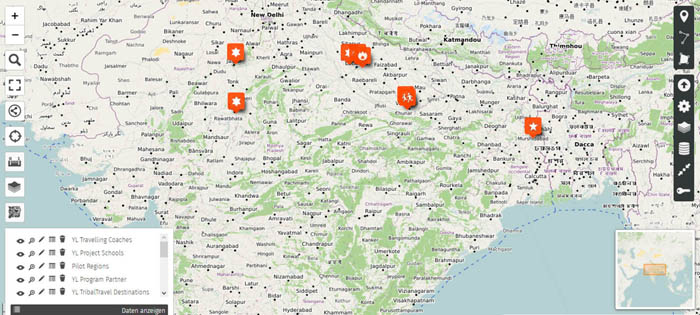
We have several YL Hero*ine friends in Northern India.
Babar in the East. To the West, Red Brigade Trust (self-defense), Orange Café (acid attack survivors), Bal Manch (street children school), Kalima Design (100% Fair Fashion), Asuvastra (plant-sourced dyes), and Nidhi in Rajasthan.
We help with TRIBALTRAVEL trips as tourist, volunteer, coach, youth exchange.
Are you joining?
DONATE
IN-KIND
TELL-A-PRO
WIELD IT
PAY A VIST
Help add a LearnSpace and internet access to his school.
North Americans: Do a book drive to create your continent’s best kid & youth library and send to him. Europe: do games drives.
Tell a good teacher + all schools in town: they can interact with Babar.
Study his YL Action Guide. Teach kids what you know. Share your experience with him / his students.
Pay a visit, volunteer, teach at his school and in the community.
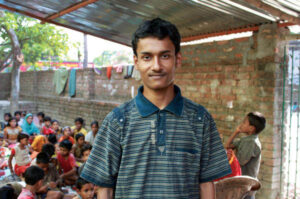
BABAR
is every teacher’s darling hero. and students love him, too. Tell them of him! And don’t just get inspired. Help him achieve his dream. Join the legend!



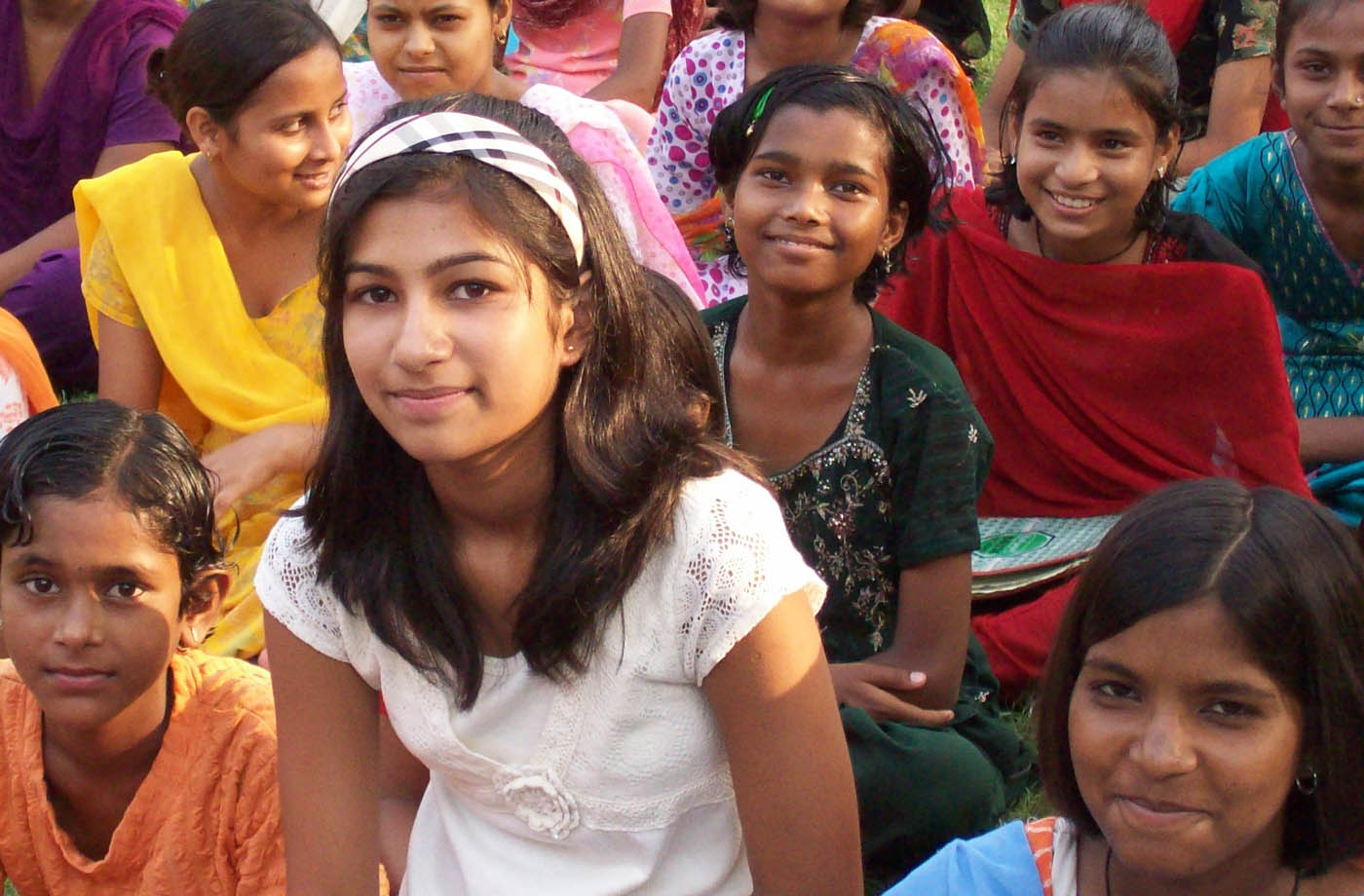
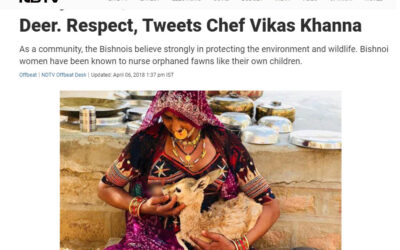

0 Comments